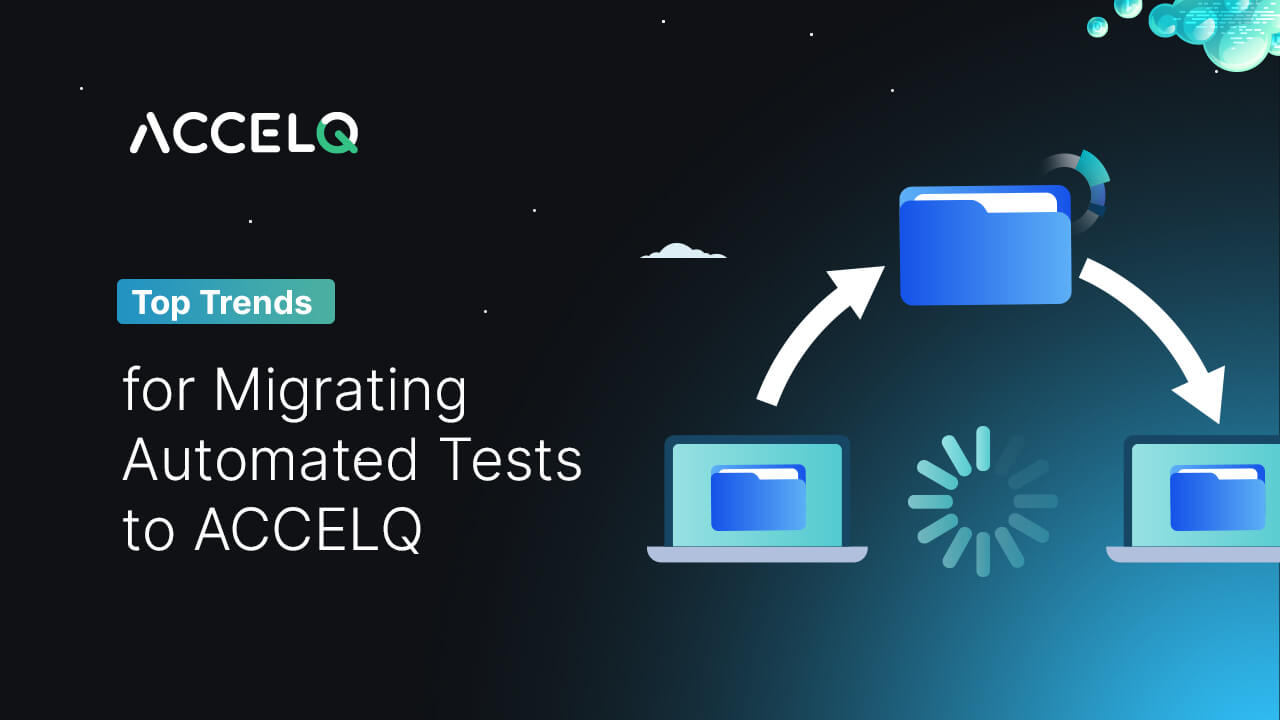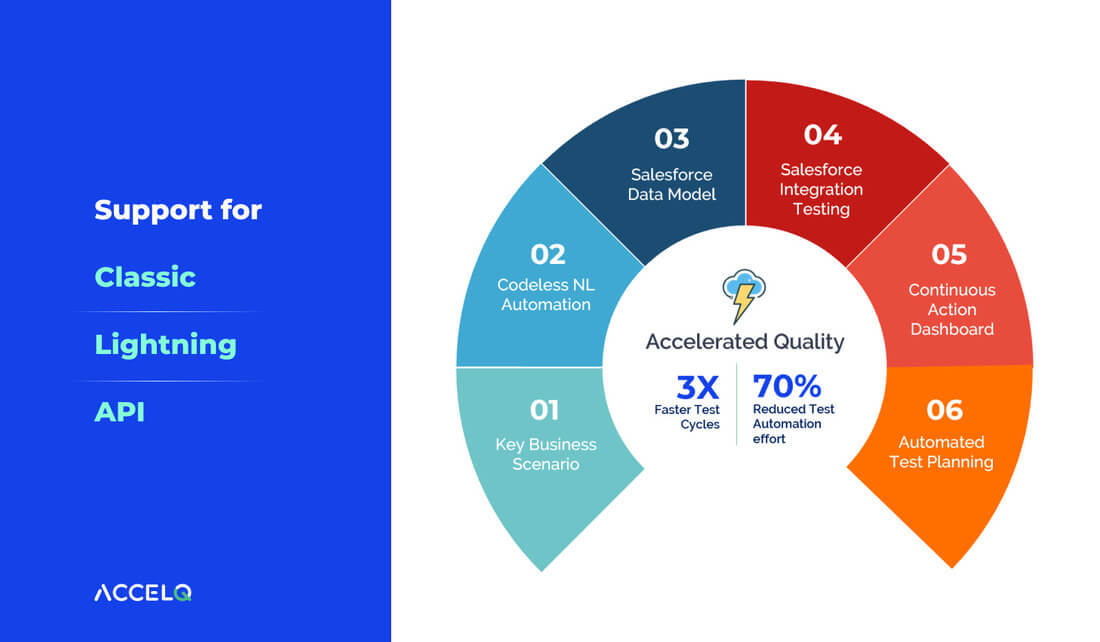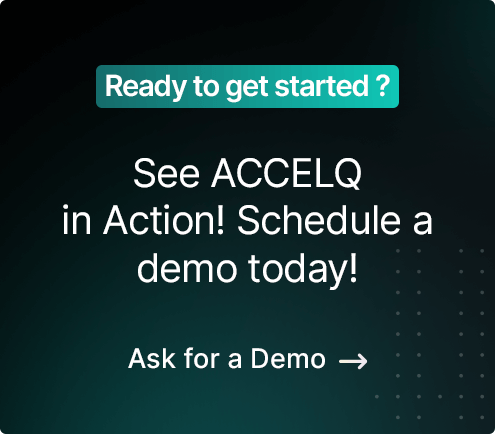
Have you liked the ACCELQ platform but not sure how to migrate the automated tests from your existing test automation platform to this new platform? Don’t be worried. In this article, we cover the essentials for you. Knowing these details will give you some extra confidence.
Why Migrating Automated Tests to ACCELQ Is a Good Decision?

ACCELQ is undoubtedly one of the hottest test automation platforms available in the market today. From offering a no-code feature for engineers to seamlessly automate tests faster to supporting many platform and behavior-specific test automation scenarios, ACCELQ is a one-stop, end-to-end test automation solution. It is a true platform to help you achieve continuous test automation.
This one platform seamlessly connects to all your testing needs across your application portfolio of Web, Mobile, API, Desktop.
IT teams of all sizes use ACCELQ to accelerate their testing by adapting a lifecycle automation approach that spans test design, planning, test generation, and execution. It enables 3X faster automation, 70% lower maintenance, and 50% cost reduction.
Get Started for free today.
No credit card needed | No obligations
Why Is Following Best Practices for Migration Crucial for Success?
Change management, especially in digital initiatives, is often considered to be one of the most complex endeavors that enterprises undertake. With digital channels often powering major revenue streams, enterprises cannot risk a change that will result in disrupting the normal functioning of any application.
Migrating automated tests to ACCELQ lets you enjoy several benefits. But the process is important and deserves attention equivalent to any major tech upgrade. Following the best practices for migrating automated tests to ACCELQ is thus critical for ensuring a smooth migration experience without disrupting your daily testing routines.
What Are the Best Practices for Migrating Automated Tests to ACCELQ?

Shortlist for Migration
The first step for seamlessly migrating automated tests to ACCELQ is to know what to migrate. Test engineers must evaluate their existing automated tests. They must filter out any irrelevant tests that were developed for a specific instance no longer needed in their applications. To that end, they must take note of all kinds of automated tests developed in the existing test automation platform. It can involve UI test automation, API test automation, or even platform-specific automation like Salesforce automation testing, ServiceNow automation testing, etc.
The business may have moved away from a vendor for any of its core functionality. For example, they might have migrated from a Salesforce CRM to an Oracle CRM. Therefore, automated tests created for Salesforce are no longer relevant for the business and can be ignored when migrating automated tests to ACCELQ. Shortlisting the relevant ones only allows the migration process to complete faster. This further allows test engineers to leverage the benefits of ACCELQ quickly.
Build Awareness
Very often, new tools or platforms face resistance from the workforce. That's because they fear disruptions to their work routine. Therefore, it is important for businesses to ensure that they provide visibility into the features of ACCELQ to help engineers realize how easy a tool it is to manage their test automation efforts. By virtue of its no-code design philosophy, ACCELQ can help test engineers write automated tests in plain English.
In essence, enterprises must ensure that employees have access to training and self-learning resources so that they can step right into action upon the deployment of the tool. This will benefit the speed of new application builds significantly as test engineers will get faster testing validations from ACCELQ when they can execute tests the right way.
Prioritize the Hardest First for Migration
Under normal circumstances, most change management initiatives happen by first focusing on moving the easier tasks to a new platform. However, when it comes to migrating automated tests, this approach is not preferable as it can backfire significantly. It can lead to a situation where the existing test automation platform and ACCELQ both have the same set of tests working fine. However, the complex tests remain challenging with issues on the existing platform.
Often, the decision to move to a new test automation platform like ACCELQ stems from the fundamental problem of certain tests being too complex and having issues in the existing platform. Hence, these tests should be the first to be migrated to ACCELQ. The test engineers can leverage the features of the platform to smoothen the automation process. They can use ACCELQ’s no-code test automation feature to easily build new automation workflows for complex test scenarios that were not possible in the existing platform.
Once the hard tests are migrated and automated seamlessly on ACCELQ, the easier ones can be moved to the final stage as they do not pose any challenges.
Expand Coverage
Limited diversity in automation testing coverage is a key drawback of several popular test automation platforms. However, when moving to ACCELQ, you have the freedom to extend test automation to as many types of testing as possible.
By using the no-code features of ACCELQ, test engineers can build automated workflows for testing types not covered by traditional test automation tools — for example, API test automation, UI test automation, and even continuous testing in DevOps as well as enabling innovations like Salesforce CI/CD seamlessly.
ACCELQ- the right choice for smart test automation
Migrating automated tests to ACCELQ isn't a herculean challenge. By following the above best practices in addition to our great support services, your migration exercise will successfully complete in very short time frames.
Moreover, transitioning to ACCELQ offers a plethora of benefits, with the added advantage of ensuring higher-quality test automation with no disruption to business workflows of digital applications. To that end, the decision to move into ACCELQ from your existing test automation platform is a wise one. Talk to our experts to learn how to make it the best decision for your testing strategy.
Related Posts
 Working with Data Types and Data Lists in ACCELQ
Working with Data Types and Data Lists in ACCELQ
Working with Data Types and Data Lists in ACCELQ
 Contract testing and its role in Microservices
Contract testing and its role in Microservices


































